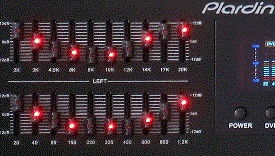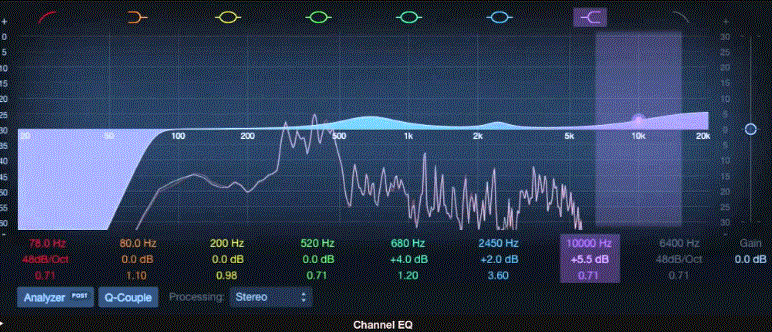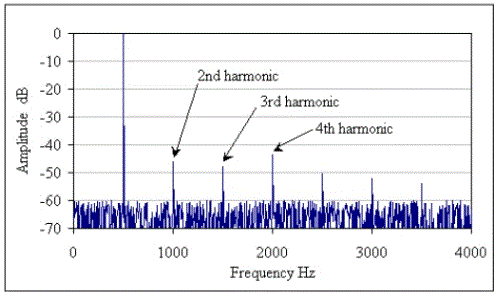We have noticed that a lot of the use of Tūranga's Taupuni Oro/Ataata – Audio/Video Studio is for vocal recording. We are happy that so many of you are enjoying this special part of our library. We have also noticed than not many of our users know about equalization, and what it does for the recorded sound.
What is an equalizer?
Equalizers are software or hardware filters that adjust the loudness of specific frequencies. It is the process of adjusting the balance between frequency components within an electronic signal.
In years gone by, they were often on home and car stereos so that you could adjust the freguency balance for your listening environment.

Now they are more commonly used inside music computer software know as DAWs (Digital Audio Workstation) such as Logic Pro X, Reaper and Abelton.

How do equalizers effect the audio?
Within an audio signal there is a fundamental (the pitch you hear) and harmonics. A harmonic is one of an ascending series of sonic components that sound above the audible frequency (fundamental). It is the presence of harmonics within a sound source that helps to produce a sound's unique timbre. This is why you can hear the difference between two instruments playing the same pitch.
You can easily change the timbre of a sound by boosting or cutting some of the frequencies being activated by the source sound. To make a sound darker and warmer, you would cut some of the higher harmonics, and you could make the sound brighter by boosting the higher harmonics.

Equalization can be a powerful tool when used correctly. You have the power to completely alter the original source sound. As with most things in music, it is best to try and make the best sound as possible in the original recording, but if needed you can still effect the music in a positive way afterwards by using equalization.
If you haven't looked at Lynda.com already I would recommend it. There is an excellent video on this whole subject. It is called Audio foundations: EQ and filters. You have free access with your library card. Check it out.





Add a comment to: In the AV Studio: Equalization Techniques